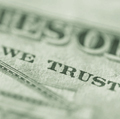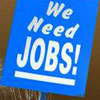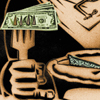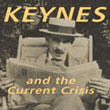The Financial Crisis
Recent posts from the D&S Blog.
- Jun 11 Debt Relief for Whom? Part II
- Jun 1 Debt Relief for Whom?
- May 25 2022 Annual Labor Issue
- Apr 16 The Last Tour Guide to Leave Cuba
Earlier posts on the crisis:
Note: We got sick of keeping this updated, so the earlier posts listed below are through early summer 2009.
- Jun 24, 2009 Rebound ... in Bankers? Pay
- Jun 23 Two More Items on Reform of Financial Regulation
- Jun 23 Two Views of the Crisis
- Jun 22 Two Good Pieces on Global Finance from FPIF
- Jun 22 World Hunger Reaches 1 Billion Mark
- Jun 20 TDCotE (xi): Littlle Zakaria Dresses Like Grownup
- Jun 19 CIA Hiring Failed Wall Street Analysts
- Jun 19 Plunging State Income Tax Revenues
- Jun 19 Some Takes on the Regulatory Overhaul
- Jun 18 The Business Press MIA Before the Crisis
- Jun 18 Unemployment: Both a Leading and a Lagging Indicator
- Jun 17 The Recession Tracks the Great Depression
- Jun 16 Economic Benefits of Health Care for Children
- Jun 15 Perspectives on the Iranian Election
- Jun 15 The Ending of America's Financial-Military Empire
- Jun 14 Back to the Trough for Happy Piglets
- Jun 14 Less Down is the New Up (Carl Bloice)
- Jun 12 Your Digital Converter Box
- Jun 12 Hyperinflation or Deflation?
- Jun 12 Systemic Fear and Forward-Looking Finance
- Jun 10 Real Unemployment Rate Now 16.4%
- Jun 9 Collaborative Medicine
- Jun 9 Congress Helped Banks Defang Key Rule
- Jun 8 Analysis of Indian Election Results
- Jun 8 Supreme Court Temporarily Blocks Chrysler Sale
- Jun 5 Latino Jobless Rate Jumps to 12.7% in May
- Jun 4 Michael Perelman's Iraq Peace Plan
- Jun 4 Grand Theft Auto (Greg Palast)
- Jun 3 Geithner Couldn't Sell Home (NY Post)
- Jun 3 April-to-May Job Loss: 532,000
- Jun 2 Mayor of Lansing Defends Autoworkers
- Jun 2 Goodbye, GM (Michael Moore)
- Jun 2 Nader Statement On GM Bankruptcy
- Jun 1 Traffic Tickets to Plug Budget Shortfalls?
- Jun 1 Congress's Afterthought, Wall Street's Trillion Dollars
- May 31 Failed Stress Tests...in 2004
- May 31 Job Fair Canceled Because of Crowds
- May 29 Rallies for Single-Payer in 50+ Cities 5/30
- May 29 Peruvian Workers Protest for Higher Pay
- May 28 Hedge Fund Manager 'Less of a Capitalist'
- May 28 Min. wage increases boost consumer spending
- May 27 Fed In the Headlights
- May 26 A Job and No Mortgage for All
- May 25 The Sinking Dollar (Wallerstein)
- May 22 The SEC and Investor Suffrage
- May 22 Wells Fargo's Counter-Stimulus Strategy
- May 21 Card-Check Is Dead (Liza Featherstone)
- May 20 U.S. May Add New Financial Watchdog
- May 19 All That Glitters Is Goldman Sachs
- May 18 Science Fiction From Below
- May 17 A Monetary Reformer in Kindergarten
- May 17 Michael Greenberger on Derivatives
- May 17 Ethanol Snake Oil
- May 15 'Sham' Bailouts Help Speculators
- May 14 Steelworkers Attack ArcelorMittal
- May 14 The IMF as Big Banks' Debt-Collector
- May 14 The Global Financial Community
- May 13 Changing the Auto Industry from the Wheels Up
- May 13 Sen. Byron Dorgan: the Good and the Bad
- May 12 Dean Baker on Economists' 'Malpractice'
- May 12 'Geithner' on SNL
- May 11 Goldman Sachs Pays For Predatory Ways
- May 11 All-Out Effort to Put Single-Payer 'On the Table'
- May 11 Unjust Deserts by Gar Alperovitz and Lew Daly
- May 10 TDCotE (x): 'Life Is Beautiful' Economics
- May 10 Bank's $180 Billion Credit Card Time Bomb
- May 10 GM Bankruptcy Clock Ticking Fast
- May 9 Banks Won Concessions on Stress Tests (WSJ)
- May 8 1 in 5 Homeowners Under Water and Sinking Fast
- May 8 Unemployment at Record High
- May 8 Black Male Unemployment Jumpst to 17.2%
- May 7 Biggest Banks Need $75 Billion More
- May 7 AIG Bonuses Were $454 Million
- May 7 25 Lenders Made $1 Trillion In Subprime Loans
- May 7 Don't Believe the Hype About Union Intimidation
- May 7 UAW/Chrysler: How 55% = 0% (D. Henwood)
- May 7 Stress Test Haiku
- May 6 Private Equity Aims to Snatch Up Banks
- May 6 The Battle for Health Care Begins
- May 5 UAW Plans To Dump Chrysler Stock
- May 4 Swine 'Flu Action Alert (non-satirical)
- May 4 WHO Running out of Panic Colors (satire)
- May 4 Why Leftists Keep Winning in Latin America
- May 1 Auto Parts Makers In Danger
- May 1 Starbucks Cited for Worker Violations
- May 1 Senators Block Cram Downs
- May 1 Economist Honored for Income Inequality Work
- Apr 30 Sen. Durbin: Bankers 'Own' Congress
- Apr 30 Chrysler to File for Bankruptcy
- Apr 30 NAFTA Flu?
- Apr 29 Yes, Things Are Really Bad
- Apr 29 Is Factory Pig Farming To Blame For Swine Flu?
- Apr 29 Citibank and Bank of America Fail Stress Tests
- Apr 28 American Casino (GritTV)
- Apr 28 Contours of Crisis: Fiction and Reality
- Apr 28 Workers To Control Chrysler
- Apr 28 Corporate America: The Serial Job Killer
- Apr 27 Lose Money Get Raise
- Apr 27 GM Dumps Pontiac and Workers
- Apr 25 Econ board has yet to meet publicly
- Apr 25 29 Failed Banks In 2009 -- So Far
- Apr 25 Pensions Plans in Peril
- Apr 24 New! Blog Podcast
- Apr 24 14 million homes are vacant
- Apr 24 Silver Lining? Possible Leverage for Debtors
- Apr 23 Calif. Housing Defaults Skyrocket
- Apr 23 Dean Baker at JP Forum
- Apr 23 Thievery Under TARP
- Apr 23 Chrysler Headed for Bankruptcy?
- Apr 23 Wall Street Digs In
- Apr 22 Dull Compulsion of the Economic (ix): Zizek
- Apr 22 Big Banks' Fuzzy Math
- Apr 22 Another $3 billion Ponzi Scheme
- Apr 22 Sky-High Unemployment for Blacks with Degrees
- Apr 22 The Financialization of the American University
- Apr 21 Big Corps Using Bailout $ for Lobbying
- Apr 21 American Empire Foreclosed?
- Apr 20 Obama *Does* Take on Entrenched Interests
- Apr 20 Online Course on the Crisis (UMass/CPE)
- Apr 20 Chris Dodd's Personal Bailout
- Apr 20 Workshops on the Crisis (Boston)
- Apr 17 Job Loss Fallout Map
- Apr 17 Stiglitz on Wall St. Lobbying
- Apr 17 Mass Suicide by Broke Indian Farmers
- Apr 17 Cram Down Those Loans!
- Apr 16 Fox Outraged by Fratboy Humor Re: Teabagging
- Apr 16 Stocks Down, Gun Sales Up
- Apr 16 Skyrocketing Foreclosures
- Apr 16 Mall Operator in Bankruptcy
- Apr 16 More on AIG and Goldman
- Apr 15 Most Positive View of Income Taxes Since 1956
- Apr 15 On Events in Thailand
- Apr 15 What Harvard Money Managers Make
- Apr 15 China Reduces Dollar Reserves in Feb.
- Apr 15 Consumer Prices Fall Despite Stimulus, PPIP
- Apr 14 Questions about Goldman's Great Quarter
- Apr 14 Poor Retail Sales
- Apr 14 China to TIGHTEN Credit
- Apr 14 The Two Piracies in Somalia
- Apr 14 Frank Rich on Larry Summers
- Apr 13 How Harvard Lost $11 Billion
- Apr 11 'A New Way Forward'--Demos Today
- Apr 10 'Bailout Funds' to 'Allow' Main Street to Invest
- Apr 9 Poverty Is Bad For Your Health
- Apr 9 Auto Dealers In Dire Straits
- Apr 9 Time To Shift the Tax Burdon Back
- Apr 8 Taxpayers On the Hook For Up To $10.9 Trillion
- Apr 8 Housing Meltdown Leads To More Bankruptcies
- Apr 8 Tarp for Failing Insurers But Not for Car Cos
- Apr 8 No May Loans for GM and Chrysler
- Apr 7 Elizabeth Warren on TARP on YouTube
- Apr 7 Economy Still In Freefall
- Apr 7 Insolvent Banks and Imaginary Firesale?
- Apr 7 Obama Econ Team's Flawed Cosmology (AHuff)
- Apr 6 Re-Examining Capitalism (Jamie Galbraith)
- Apr 6 Elizabeth Warren: Sack Bank Execs
- Apr 6 Soros: U.S. banks 'basically insolvent'
- Apr 6 Interview with Bill Black on Moyers
- Apr 3 Why We Need to Keep Mark to Market
- Apr 3 Tell CVS To Unlock Their Condoms
- Apr 3 BLS March Unemployment Data
- Apr 3 Gay Marriage Blues
- Apr 3 But What About the Trust Fund Babies?
- Apr 2 Leaders Not Facing Up to Scale of Crisis (Guardian)
- Apr 2 Too big to save: the end of financial capitalism
- Apr 2 Obama's Budget: Path to SOCIALISM (EPI)
- Apr 1 Pension Guarantee Corp Going Into Stocks
- Apr 1 Massive Protests at G20
- Mar 31 The Quiet Coup (Simon Johnson)
- Mar 31 State-Owned Bank in ND Doing Just Fine
- Mar 31 Companies Suspending 401(k) Contributions
- Mar 31 Foreclosure Crisis Far from Over
- Mar 30 WE20--The People's G20
- Mar 30 Latin America's Reaction to the Crisis
- Mar 29 Two Items on Guadeloupe General Strike
- Mar 29 Mike Davis on Socialism on Bill Moyers
- Mar 29 The G20 Summit and Unions
- Mar 29 Trust Your Guts (Greider)
- Mar 27 Obama vs. Cuomo on Bank Investigations
- Mar 27 Single-Payer Updates
- Mar 26 New Home Sales Fell In February, Not Rose
- Mar 26 Official Unemployment Numbers Grim
- Mar 26 Wage Theft (NYT, ABC News!)
- Mar 25 Why Georgists Correctly Predicted the Crisis
- Mar 25 Common Security Clubs
- Mar 25 Pensions In Peril
- Mar 25 Successful bank rescue still far away (M. Wolf)
- Mar 25 Hey Paul Krugman (A Song, A Plea)
- Mar 24 Stiglitz On the Fiscal Crisis Of the State
- Mar 24 U.S. Seeks Expanded Power to Seize Firms
- Mar 24 Down the dark path (Delasantellis on Geithner)
- Mar 24 The Economics of War
- Mar 24 The Wealth Gap Gets Wider
- Mar 23 Market Up Krugman Down
- Mar 23 Foreign Firms Want Piece of Stimulus Pie
- Mar 23 US Still #1 In Military Spending
- Mar 22 Regulators Despair Of 'Ponzimonium'
- Mar 22 Obama Plans To Avoid Repeat of Crisis
- Mar 22 Proposed Plan To Deal With Toxic Assets
- Mar 22 RBoS To Become UK's Enron?
- Mar 22 The People's Agenda (NYC event)
- Mar 22 The Virtues of Public Anger, and Need for More
- Mar 21 Krugman: The Zombies Have Won
- Mar 20 AIG Sues To Get $306 Million In Taxes BACK!
- Mar 19 Jamie Galbraith: No Return to Normal
- Mar 19 Auto Parts Suppliers Get $5 Billion Loan
- Mar 19 Time For A 'Managed Bankruptcy' For Banks
- Mar 19 Bailout Firms Owe $220 Million In Unpaid Taxes
- Mar 19 Why Are AIG INVESTORS Getting Billions?
- Mar 19 Unemployment Rate On Par With 1982 Recession
- Mar 18 Fed Spends Another $1.2 Trillion On Bailout
- Mar 18 Europe Defended Against Krugman
- Mar 18 Amazon Kindle Equals the Death of Personhood, Ownership, and Free Speech?
- Mar 18 Capital Flowing Out of Developing Countries
- Mar 17 A Bit More on Madoff and Wiesel
- Mar 17 D&S in Polish
- Mar 17 Madoff's Accomplices: His Victims (Nocera)
- Mar 17 AIG, Labor, and the Sanctity of Contracts
- Mar 17 Single-Payer Rally in Burlington TODAY
- Mar 16 Jobless Hit with Bank Fees on Benefits
- Mar 16 New Report on Global Gender Pay Gap
- Mar 15 AIG Head Insists On Giving Millions In Bonuses
- Mar 13 Pity the Overtaxed Rich
- Mar 13 Can Marijuana Rescue the Cali Economy?
- Mar 13 Auto Supplier and Six Flags Going Down
- Mar 13 Insider Report on the Health Care Summit
- Mar 13 Berkeshire Hathaway Loses AAA Rating
- Mar 13 FDIC Collected No Premiums From 1996 to 2006
- Mar 12 Net Worth Plummets
- Mar 12 Singing the Same Old Song: An EFCA Game
- Mar 11 Christina Romer Defends Fiscal Stimulus
- Mar 10 Treasury Lacks Oversight Of Bailout Billions
- Mar 10 Renters Hit Hard In Foreclosure Crisis
- Mar 10 A Couple of Items on the Bank Bailout
- Mar 10 Ha-Joon Chang on Democracy Now
- Mar 9 Hey Econ Profs - Get Your Textbooks Here
- Mar 9 Several Links on Capitalism/Socialism
- Mar 9 Financial Times Considers "The Future of Capitalism"
- Mar 9 Sen. Labor Committee Hearing on Abuse--TODAY
- Mar 9 More Craziness: Japan Runs Record CA Deficit
- Mar 9 ADB: Asset Prices May Have Fallen $50 Trn
- Mar 8 TDCotE (viii): The Use and Abuse of Trust
- Mar 7 London G20 Protest: Biggest Since Iraq War?
- Mar 7 FDIC Bill Attempt To Bypass TARP battle
- Mar 7 January Consumer Borrowing Rises
- Mar 7 Scargill: We Had Deal with Thatcher
- Mar 7 UK Government Takes over Lloyd's
- Mar 6 IMF Blames Crisis On Lack of Regulation
- Mar 6 Nation Institute Panel on Crisis Tonight in NYC
- Mar 6 Job Bytes, March 6 (Dean Baker)
- Mar 6 Confusion, Tunneling, and Looting
- Mar 6 Blue-Green Insurgency
- Mar 6 Black Male Jobless Rate: 16.1% in February
- Mar 6 Feb. Unemployment tops 8%...
- Mar 5 Can My Boss Do That?
- Mar 5 Unemployment (Including Closures and Layoffs)
- Mar 5 Citi and GM Deathwatch
- Mar 4 Two Items on the Employee Free Choice Act
- Mar 4 WSJ and Hightower on Wall Street Compensation
- Mar 4 File Under 'Have They No Shame?'
- Mar 4 Unemployment Picture Yet Worse
- Mar 4 Sen Sanders: Fed Must Name Banks
- Mar 3 NYT Missing It on Women's Paychecks
- Mar 3 OECD: Downturn Deeper than IMF Forecast
- Mar 3 The Costs of Hoarding at Elite Universities
- Mar 3 Costs of the Cuba Embargo--to the U.S.
- Mar 3 Prisons: Pew on U.S., Monbiot on U.K.
- Mar 2 The Virtues of Concentration (Doug Henwood)
- Mar 2 Revenge of the Glut (Krugman)
- Mar 2 Lessons from Global Corporate Frauds
- Mar 2 Blame the Queen
- Mar 2 AIG Chalks Up Biggest Loss Ever, Gets $30B
- Mar 1 TDCotE (vii): Dumb Animals
- Mar 1 California Unemployment Tops 10%
- Mar 1 Merkel Rejects Bailout for Eastern Europe
- Mar 1 AIG Follows Citi
- Feb 28 Bleak Picture in Asia, More Gloomy Thoughts
- Feb 28 Warren Buffet Feels the Pain
- Feb 28 Nordic Economies Tanking
- Feb 28 Essential Reading from Yesterday's FT
- Feb 27 Report from Eastern Econ. Assoc. Meetings
- Feb 27 Obama's ($1.7 Trn Deficit) First Budget
- Feb 27 US and UK Increase Stakes in Banks
- Feb 27 US 4Q GDP Falls 6.2%, Biggest Drop Since '82
- Feb 26 Over 250 Banks On The Edge
- Feb 26 US Jobless Claims At Record High
- Feb 26 Chicago Factory Workers To Be Rehired
- Feb 26 G.M. Loses $9.6 Billion
- Feb 26 Stiglitz Criticizes O.'s Speech, Favors Single-Payer
- Feb 26 Obama's Address (Dave Lindorff--Counterpunch)
- Feb 26 Alternative Job Creation Plan (S. Aronowitz)
- Feb 26 Closures and Layoffs (Feb. 22-28)
- Feb 25 Dull Compulsion (vi): Obama's Speech
- Feb 25 Bank Throws $Million Bailout Party
- Feb 25 Cheese Sandwiches For School Kids
- Feb 25 Delasantellis on Foreclosure Endgame
- Feb 25 Job Creation Proposal from 1973
- Feb 25 Rich Americans Suing UBS
- Feb 25 Eastern Europe's Economies Tanking
- Feb 25 Economic Ignorance (Michael Yates)
- Feb 24 CEOs Not Worried About Pay Caps
- Feb 24 Diamonds No Longer De Beers Best Friend
- Feb 24 Detroit Houses Going For $7,500
- Feb 24 UAW Reaches Deal With Ford
- Feb 24 AMEX Takes Bailout, Boots Customers
- Feb 24 Lines Swell At Food Banks
- Feb 24 Dean Baker on C-Span 2
- Feb 23 Nigerians Scammers Pluck $27 million from Citibank
- Feb 23 Anatomy Of a Foreclosure In Cleveland
- Feb 23 Bank Nationalization (P. Krugman, F. Moseley)
- Feb 22 The Great Real Estate Bubble of the 1920's
- Feb 22 Dull Compulsion (v): Links
- Feb 21 Huge Protest over Irish Economy
- Feb 21 Two Down: How Many More To Go?
- Feb 20 Mass. Doctors Push for Single-Payer
- Feb 20 Stimulus Package Limits H1-B Visas
- Feb 20 Bard College Fires Joel Kovel
- Feb 20 Citi Warning on Brazil
- Feb 19 More on Canada (N. Folbre on NYT econ blog)
- Feb 19 Citi Execs Takes Care Of Their Own
- Feb 19 Canadian Banks--Shovel-Ready
- Feb 18 UBS Admits To Massive Tax Evasion Scheme
- Feb 18 What's Missing From the Housing Plan
- Feb 18 What Lovely Weather for a Bank Run...
- Feb 18 UK Biz. Secretary Tirade at Starbucks
- Feb 18 We've Outsourced Unemployment
- Feb 18 Immanuel Wallerstein on the Crisis
- Feb 18 Greenspan (!): Nationalize the Banks
- Feb 18 Germany May Rescue Debt-Laden EU Members
- Feb 18 2009 Global Economic Picture Bleak
- Feb 18 Obama Plan: They've Got Their Work Cut Out
- Feb 18 Obama Mortgage Relief Plan
- Feb 17 Elderly NYers Angry as Crisis Hits Poorest
- Feb 17 Stanford Financial Charged with 'Massive' Fraud
- Feb 17 Scared of Solar Power?
- Feb 17 Julian Delasantellis on Stress Testing
- Feb 17 Weakness Unmatched in 35 Years
- Feb 17 Bill Black on 'Stress Tests' (Yves Smith)
- Feb 17 Strange Stirrings in Forex Markets
- Feb 16 Were All the WPA Workers Still 'Unemployed'?
- Feb 16 No Car Czar
- Feb 16 The Dull Compulsion of the Economic (iv)
- Feb 15 The Dull Compulsion of the Economic (iii)
- Feb 15 Global Growth Is At Virtual Halt
- Feb 14 Drugs Companies and Research Publications
- Feb 14 GlaxoSmithKline in Major Reversal on Drugs
- Feb 13 The Ultimate Growth Industry (Nancy Folbre)
- Feb 13 Closures and Layoffs (Feb. 8-14)
- Feb 13 Looting Social Security
- Feb 12 WSJ Fires Researchers
- Feb 12 Companies Fighting Unemployment Claims
- Feb 12 Capitalism Hits the Fan: The Film
- Feb 12 China to stick with US bonds (FT)
- Feb 11 Employee Free Choice Act Info Page
- Feb 11 Class of 2009: Take Low-Skilled Jobs
- Feb 11 Geithner Plan Smackdown Wrap
- Feb 10 Geithner Prevailed In Bailout To Protect CEOs
- Feb 10 Curcuit City Bosses Ask For Bonuses!
- Feb 10 The Dull Compulsion of the Economic (ii)
- Feb 10 Prison Fees Proposed in Massachusetts
- Feb 10 Job Losses Compared
- Feb 9 Collins Cuts Women's Jobs from Stimulus
- Feb 9 Immigrants Bring Big Bucks For Jails
- Feb 8 More Hindrance Than Help?
- Feb 8 Nutrition, Personal Finance, Political Economy
- Feb 8 The Dull Compulsion of the Economic (i)
- Feb 7 Failing Banks Could Cost FDIC Over $40 Billion
- Feb 7 And Bank Plan To Be Announced Next Week
- Feb 7 Agreement on Stimulus Package
- Feb 6 Black Male Jobless Rate: 15.8% In January
- Feb 6 Closures & Layoffs (Feb. 1-7)
- Feb 5 Thoughts on Republic Windows and Doors
- Feb 5 BoA on Ropes Again: $20 Bn Lifeline Not Enough
- Feb 4 Ambrose Evans-Pritchard: Worst Over?
- Feb 4 Playing Chicken with the Fed, by John Kemp
- Feb 4 Yves Smith on Post Piece on Bad Banks
- Feb 4 Planned layoffs in January hit 7-year high
- Feb 4 Beneath the Daschle Flap
- Feb 4 Recovery bill doesn't even cover basic needs
- Feb 4 Tough Times for Older Americans
- Feb 4 The Whole World Is Rioting--Why Aren't We?
- Feb 3 Lotteries Are A Form Of Unjust Taxation
- Feb 3 Taxes? Too Busy, Busy, Busy!
- Feb 3 $1 Billion for Prisons in Stimulus Package
- Feb 2 Asian Trade/IP Meldown: Biblical in Scope?
- Feb 2 Protests Spread to Russia
- Feb 2 Meanwhile, UK Corporations Dodge Tax
- Feb 2 More on UK Strikes
- Feb 1 Not All Repubs Are Against Stimulus
- Feb 1 Fed May Gain More Financial Oversight
- Feb 1 'We're All Mercantilists Now'
- Feb 1 Unrest in China: Worse Than Reported
- Feb 1 Meanwhile, at the Bank of England...
- Feb 1 'Fix Accounting, Then Fix System' (Yves Smith)
- Feb 1 UK Strikes Developments
- Jan 30 GDP Sees Biggest Drop in 27 Years
- Jan 29 More AIG Bailout Bonus Bonanza
- Jan 29 Airlines In Tailspin
- Jan 29 CEOs Want To Use Bailout $$ To Bust Unions
- Jan 29 What's the Matter with Michigan?
- Jan 29 Kristof: Apologist for Sweatshops
- Jan 29 Closures and Layoffs: Jan 25-31
- Jan 29 French Strike over Economic Crisis
- Jan 29 Jeff Sachs: But on the other hand...
- Jan 29 Investors Can't Bank on Capital
- Jan 28 Capitalism's 60 Year Itch
- Jan 28 Jeff Sachs: There Is No Alternative...?
- Jan 28 Bonuses--Not Wages--Sticky Downwards?
- Jan 28 Capital Theory (Sans Capital?)
- Jan 28 Today's FOMC Forecast
- Jan 28 Wage Theft in America
- Jan 28 Union Membership Rises Again in 2008 (BLS)
- Jan 28 ILO: World Economy May Lose 51 Million Jobs
- Jan 27 Geithner and the Nanny Tax
- Jan 26 Auto Parts Suppliers In Trouble
- Jan 26 This Just In....
- Jan 26 Don't See Evil?
- Jan 26 Monbiot on Government Corruption
- Jan 26 Food Crisis: Credit-Starved Turn To Barter
- Jan 26 70,000 Jobs Lost Worldwide Today
- Jan 26 Economists For the Stimulus
- Jan 26 Banks That Got TARP $ Reduced Lending
- Jan 26 The Current Recession vs. 1982 (M. Yates)
- Jan 26 Towns Sad to See Prisons Go (WSJ)
- Jan 25 Obama Plans To Tighten Financial Rules
- Jan 25 Britain Is Facing Return of Three-Day Week
- Jan 25 Meanwhile, in China...
- Jan 25 Icelanders Force Change
- Jan 24 EFCA: Missing the Forest for the Trees?
- Jan 24 Bankers Try To Quote Marx
- Jan 24 Bankruptcy Doesn't Mean No Bonus
- Jan 23 California Unemployment Spikes
- Jan 23 Merrill CEO Shopped While Company Burned
- Jan 23 Thanks for Nothing....
- Jan 22 Closures and Layoffs: Jan 18-24
- Jan 21 States Need Bailouts Too
- Jan 21 Single-Payer Job Recovery (Cal Nurses)
- Jan 20 Still Making Sense
- Jan 19 Hansen: President Has 4 Years To Save Earth
- Jan 19 Krugman on Resistance to Nationalization
- Jan 19 Corporate Bond Conundrum?
- Jan 19 The Year of Living in Denial
- Jan 18 Global Imbalances and the Triffin Dilemma
- Jan 18 Unrest in Eastern Europe Grows
- Jan 18 Big Firms Deepen Job, Wage Cuts
- Jan 18 A New US Option: An "Aggregator Bank"
- Jan 18 More on New UK Bank Initiative
- Jan 18 Brown Orders UK Banks To Come Clean
- Jan 17 Closures and Layoffs (Jan. 11-17)
- Jan 17 Labor to BoA: 'We See Your Greedy Side'
- Jan 17 Economists for Full Employment
- Jan 17 Progressive Economists Take a Stand
- Jan 16 Tax Havens For Bailout Recipients
- Jan 16 More Bailout Billions for Chrysler
- Jan 16 More Bailout Bucks for Bank of America
- Jan 15 Congress Moves on Stimulus and Bailout (NYT)
- Jan 15 Privatization = Death
- Jan 15 Call-In For Single Payer
- Jan 14 At Least It's for a Good Cause...
- Jan 14 Bank Turmoil Sinks Stocks (WSJ)
- Jan 13 Retail Sales Dive (Reuters, again)
- Jan 13 Citi Breakup in Sight (Reuters)
- Jan 13 A Delayed Report on ASSA (Arpita Banerjee)
- Jan 13 Strapped States Rethink Prison Policy
- Jan 13 More GM Loan Fine Print: UAW Can't Strike
- Jan 13 Where the Money Is (Baker via Herbert)
- Jan 13 How the Madoff Mess Hits Women (Salon.com)
- Jan 12 GM Borrows, UAW Pays
- Jan 12 Bank earnings may be 'frightful' (Reuters)
- Jan 12 Why So Little Self-Recrimination? (Yves Smith)
- Jan 11 Middle-Class Policy Myopia
- Jan 11 CBPP on Homeless Families
- Jan 11 A 'Kinder, Gentler' Ruling Class? NOT!
- Jan 11 Roubini's 'Triple Whammy'
- Jan 11 Black Male Jobless Rate In Dec. 2008: 13.4%
- Jan 10 Wedgwood and Marx
- Jan 10 Investment Tax Cuts Help Mostly the Rich
- Jan 9 Massive Anti-Trust Scam Ripped Off Taxpayers
- Jan 9 A Job Loss (at Citi) We Don't Mind
- Jan 9 Dec. Job #s: Even Worse than They Look
- Jan 9 More Criticism of TARP (WSJ)
- Jan 8 Just What We Need: Another Mega-Scandal
- Jan 8 Porno Industry Begs for It
- Jan 8 Big Holes For 401k and Pension Funds
- Jan 8 What Should Be Done (James K. Galbraith)
- Jan 7 NYT on ASSA
- Jan 7 Outsourcing Corporate Crime To India
- Jan 7 Starbucks Faces Worker Rights Charges
- Jan 6 Home Sales At 7-Year Low
- Jan 5 Report from the ASSA
- Jan 4 Too Much Office Space Spells Big Trouble
- Jan 3 Stock Market's Loss Means Higher Wages?
- Jan 2 Steel Industry Looking For $1 Trillion
- Jan 2 Manufacturing Lowest In 28 Years
- Jan 1 Nasa Scientist: Cap & Trade Not Sufficient
- Jan 1 Trade: Throwing Oil on the Fire
- Jan 1 Treasury To Aid Array of Firms, Industries
- Dec 31 ASSA and JetBlue
- Dec 31 Contours of Crisis
- Dec 30 3M CEO on Plant Closings
- Dec 30 Left Economics Gets a Nod
- Dec 29 Economics of Immigrant Detention in R.I.
- Dec 29 WaMu Reckoning
- Dec 29 Rebuild the Economy: Invest in People
- Dec 24 Judge Finds Starbucks Guilty of Union-Busting
- Dec 24 FT Falls Down on IndyMac Fraud
- Dec 24 Iceland Gives Christmas Frosty Reception
- Dec 24 Feldstein: Let the Stimulus Be Military
- Dec 23 O. to Create Loopholes for Venture Capitalists
- Dec 23 Bill Black on IndyMac/Thrift Fraud
- Dec 22 Toyota Profits Hit Pothole
- Dec 22 National Call-In Day for HR 676
- Dec 22 Stampede for 'Bush shoe' creates 100 new jobs
- Dec 21 More Working Parents Can't Afford Daycare
- Dec 21 $1.6 Billion of Bailout Went to Pay Top Execs
- Dec 19 Venture Capitalist at the SBA
- Dec 19 Don't Worry About the Debt
- Dec 18 Andy Stern's 'Team America'
- Dec 18 Closures & Layoffs (Dec. 14-20)
- Dec 18 Where Have All the Billions Gone?
- Dec 18 Dollar's Slump Erases Months Of Gains
- Dec 18 The End of Pensions?
- Dec 17 Destroying What the UAW Built
- Dec 17 Chrysler Shuts All 30 US Plants For One Month
- Dec 17 Judge Places Madoff Under House Arrest
- Dec 17 Auto Bust Could Cost Millions of Jobs
- Dec 17 Inside Account of Activism in Greece
- Dec 16 Fed Press Release on Rate Cut
- Dec 16 Open Letter to O. on Jobs and Gender
- Dec 14 Smithfield Workers Finally Unionize
- Dec 14 Dissenting Account of the Republic Settlement
- Dec 14 Protests in Greece Have an Economic Basis
- Dec 12 More on the Myth of the $73/hour Auto Worker
- Dec 12 Drug Companies Paid For Articles
- Dec 12 Beware Fudged Facts About US Auto Wages
- Dec 12 Ex Nasdaq head ran massive Ponzi scheme
- Dec 11 B of A to cut 30,000+ jobs in next 3 years
- Dec 11 Jobless Claims At Record High
- Dec 11 Invest in Infrastructure: Subways vs. Prisons?
- Dec 11 Big Three Spent $7.2 Billion On Ads In 2007
- Dec 11 Closures & Layoffs (Dec. 7-13)
- Dec 11 The Big Three's 1990s Corporate Welfare Grant
- Dec 11 World Bank and Food Crisis (Bloomberg--!)
- Dec 10 Watchdogs Chide Treasury on Bailout (WSJ)
- Dec 10 Green Jobs in Prisons?
- Dec 10 More people seeking fewer jobs
- Dec 10 Jared Bernstein to Be Top VP Econ Advisor
- Dec 9 Interest rate on US T-bills turns negative
- Dec 9 How to Get a New New Deal (John Nichols)
- Dec 9 Victory for Sit-In Workers!! BOA Caves
- Dec 9 Global Trade: Deal or No Deal
- Dec 8 BIS warns of collapse in global lending
- Dec 8 Homeowners Redefaulting After Getting Aid
- Dec 8 More Investors Believe Worst Is Over
- Dec 8 Business Schools, Models and the Crisis
- Dec 8 Obama Abandoning EFCA? Not yet.
- Dec 8 Closures & Layoffs, 11/30-12/6/08
- Dec 8 Support the Chicago Sit-In
- Dec 8 It's Official: Don't Blame the CRA
- Dec 7 Marxism and Morality
- Dec 7 Flat-Earthers To Square Environment Circle?
- Dec 7 Ecofriendly Imperialism
- Dec 7 Yves Smith on Obama's Stimulus Plan
- Dec 7 De Profundis
- Dec 7 The Conservative Nanny State
- Dec 7 Krugman Sees End of US Auto Industry
- Dec 7 Who Rules GM?
- Dec 7 Foreclosures soar. Prime borrowers next?
- Dec 6 Banks and Low Interest Rates
- Dec 6 Something Else To Worry About
- Dec 6 Stock Market Surges on Bad News!
- Dec 5 Black Male Jobless Rate: 11.9% in Nov.
- Dec 5 What Now?
- Dec 5 Nov Job Losses 1/3 More Than Forecasted
- Dec 4 Crowding Out Bites Back
- Dec 4 Harvard's Endowment Taking Big Hit
- Dec 4 Financial Crisis Hits Immigration Debate
- Dec 3 Recalling Big Banks' Role in Telecom Bust
- Dec 3 Service Sector Posts Biggest-Ever Slump
- Dec 3 The Other Squeeze
- Dec 3 Bailouts, Not Competition, Spur Innovation!
- Dec 2 O. Drops Windfall Profits Tax for Oil, Gas
- Dec 2 Geithner & Kiss. Ass., Conclusion
- Dec 1 Geithner & Kiss. Ass., Pt. 3
- Dec 1 Meredith Whitney: $2 trn credit lines to be cut?
- Nov 30 The German Question
- Nov 30 The Other Crisis: More Bad News
- Nov 30 Commercial Loans: Another Soft Spot?
- Nov 30 Hedge Funds: All You Need To Know
- Nov 30 Michael Perleman's Thanksgiving Rant
- Nov 30 Interesting Piece on Mobility
- Nov 29 More on the Fed's Balance Sheet
- Nov 29 He's Making a List, and Checking It Twice
- Nov 29 Weaponizing Credit Default Swaps
- Nov 29 Bank of America Next?
- Nov 28 Crowds trample Wal-Mart worker
- Nov 28 Geithner & Kissinger Associates--pt. 2
- Nov 28 This Just In...
- Nov 28 3 Links on Global Demand
- Nov 26 Why Should We be Surprised? (Yves Smith)
- Nov 26 Change Immigrants and Labor Can Believe In
- Nov 26 Motor City Meltdown (Thomas Palley)
- Nov 25 Neoliberalism, the IMF, Summers, & Geithner
- Nov 24 George Monbiot on the 'Other Crisis'
- Nov 24 Pushing on a String? Or on an Elastic Band?
- Nov 24 Wachovia execs make out like bandits
- Nov 24 In Other News: Three More Banks Go Down
- Nov 24 Bailouts Dwarf Spending on Other Crises
- Nov 24 Another Important Story Today
- Nov 24 Some wise Words on the Citi Bailout
- Nov 23 Citi bonanza for Goldman or Morgan?
- Nov 23 Baker Deflates Deflation-Panic Bubble
- Nov 22 Geithner and Kissinger Associates--pt. 1
- Nov 22 Not Looking Good for Citi
- Nov 21 Biggest CEO Losers are Winners
- Nov 21 Closures & Layoffs (Nov. 16-22)
- Nov 21 Big Three Spent $30 Million on Lobbying in '08
- Nov 20 S & P 314?
- Nov 20 Unemployment Insurance Running Out
- Nov 20 Insurance Co.'s Endorse Universal Coverage...
- Nov 20 Jobless Claims Reach 16-Year High (AP)
- Nov 20 GMAC Wants To Be A Bank
- Nov 19 Congressman: are taxpayers chumps?
- Nov 19 Colombian Flower Workers Fired for Organizing
- Nov 19 Historic Fall in CPI (Bloomberg)
- Nov 19 Tax Breaks for Banks Buying Banks
- Nov 18 Ask Dr. Dollar at the JP Forum
- Nov 18 Bank Closures in 2008
- Nov 18 Layoffs We Can Welcome
- Nov 17 Naomi Klein: Bailout is borderline criminal
- Nov 17 Reid Names Elizabeth Warren to TARP Board
- Nov 16 Michael Lewis on 'The End' of Wall Street
- Nov 16 AIG Reputation Destruction Video
- Nov 16 AIG to pay $503 million to top execs
- Nov 15 $10 million gets you $billions!
- Nov 14 Closures & Layoffs (Nov. 9-15)
- Nov 14 The Bank of Michael Perelman
- Nov 14 Big Mac's Heart Attack
- Nov 13 Should we stop dumping money into a hole?
- Nov 13 More AIG Fun With Bailout $$
- Nov 13 Transcript of NewsHour Interview with Paulson
- Nov 13 Dialectic of Exaggerations
- Nov 13 The High Priests of the Bubble Economy
- Nov 13 Outstanding Analysis by Anatole Kaletsky
- Nov 12 Paulson Changes Tack Yet Again on TARP
- Nov 12 Fannie/Freddie Relief Plan for Homeowners
- Nov 12 Credit Losses To Exceed 10% of US GDP?
- Nov 12 Billionaires and the 'Great Recession'
- Nov 11 The Worst Is Far from Over (Meredith Whitney)
- Nov 11 Some (Belated) Thoughts on Obama's Victory
- Nov 11 D&S Piece on Historic Events since September
- Nov 11 The G-20 Communique
- Nov 11 Biggest Rise in Joblessness since WWII
- Nov 10 GM Shares Plummet On Analyst Report
- Nov 10 Synthetic CDOs and Merrill's Fall
- Nov 10 How Far Will Deleveraging Go?
- Nov 10 Lame-Duck Administration Still Has Priorities
- Nov 10 Words Can't Describe How Wacky This Is
- Nov 10 $600 Billion Plan: Not Enough to Sustain Rally
- Nov 10 Closures & Layoffs (Nov. 2-8)
- Nov 10 Notes on the Foreclosure Crisis (T. Weisskopf)
- Nov 10 The Politics of Studs Terkel (Roger Ebert)
- Nov 10 The Maximum-Strength Remedy (Robert Reich)
- Nov 7 No GM/Chrysler Deal
- Nov 7 Good Review of Subprime
- Nov 7 Black Jobless Rate: 11.1% In October
- Nov 7 Can Obama Be FDR? (Bob Kuttner)
- Nov 7 2-Day Downturn and Hedge Fund Redmptions
- Nov 7 Horrific Retail Sales; More Bankruptcies?
- Nov 7 On The Ratings Agencies
- Nov 7 And If That Didn't Impress You...
- Nov 7 Far Worse Than Thought
- Nov 6 Good Survey: How Bad in Emerging Markets?
- Nov 6 Co-centric Vicious Cycles
- Nov 5 Yves Smith on a Big Puzzle
- Nov 5 LIBOR: Still Stuck
- Nov 5 Post-Election Hangover (short)
- Nov 5 Shift in Economic Thinking (Lawrence Mishel)
- Nov 4 Good Piece on Finance
- Nov 4 A LIBOR Primer
- Nov 4 Spoilsport
- Nov 4 Bank Failures And Presidential Transitions
- Nov 4 'You Can't Make This Stuff Up...'
- Nov 3 GM Chrysler Deal Would Cause Massive Layoffs
- Nov 3 Kaletsky: Transition to Begin Immediately
- Nov 3 PE: Bankruptcy 'n Things 'R' Us
- Nov 3 How to Thaw Credit, Now and Forever
- Nov 2 If You Could Use a Laugh About Now...
- Nov 2 Trade Deterioration Continues
- Nov 2 Uncle Sam v. McWorld
- Nov 2 Positive Drivers in Negative Environment
- Nov 1 Jumping Before They Could Be Pushed
- Nov 1 How the Other Half Recapitalizes
- Nov 1 Not Just an American Problem
- Nov 1 Protesters Disrupt Frankfurt Stock Exchange
- Nov 1 Teamsters to Own Part of WonderBread?
- Nov 1 Studs Terkel dies
- Nov 1 Closures & Layoffs (Oct 26-Nov 1)
- Oct 31 Lessons From Japan
- Oct 31 Naomi Klein on US Recapitalization
- Oct 31 Demand from New Admin: Claw This Back!
- Oct 31 This Isn't Even Funny Anymore
- Oct 31 Barney Frank's JP Morgan Chase Connection
- Oct 30 Another Taxpayer Bailout Swindle
- Oct 30 U.S. Consumers Shop, Drop
- Oct 30 Banks Spend Cash On Dividends, Not Loans
- Oct 30 Humble Pie Chart
- Oct 30 Singing for Our Salvation
- Oct 29 Swap Lines Extended To At-Risk Countries
- Oct 29 Commercial Paper (Max Fraad Wolff)
- Oct 29 Movement on the Bailout Front
- Oct 29 Explaining Yesterday's Mega-Rally
- Oct 29 Was Wall Street's Banking Crisis Predictable?
- Oct 29 A Financial Meltdown 30 Years in the Making
- Oct 28 Closures & Layoffs (Oct. 19-25)
- Oct 28 Something Has To Give
- Oct 28 Bank of England Doubles Bailout Estimate
- Oct 28 Letters of Credit and Trade Finance Freeze
- Oct 28 The Alchemy of Finance
- Oct 28 Dumb (Ideology) and Dumber (Modelling)
- Oct 27 Asia and the Meltdown of American Finance
- Oct 27 Related Post on Fed Balance Sheet
- Oct 27 Fed Balance Sheet and Inflation
- Oct 27 Safe Haven Musical Chairs...
- Oct 27 Here We Go Again
- Oct 26 Desperate Measures
- Oct 26 Good Basic Article on Leverage and the Crisis
- Oct 26 Crisis Focus Turn: To Currencies, and Europe
- Oct 26 View from UK: US Joins UK on Recession Brink
- Oct 25 Wall Street and the Return of the Repressed
- Oct 25 Bailedout Cash for Acquisition, Not Loans
- Oct 25 Recapitalization: A Sisyphean Task
- Oct 25 Carry Trade: Key To Understanding Crisis
- Oct 25 Interpreting Friday's Craziness
- Oct 25 Capitalism with American Characteristics
- Oct 24 It Wasn't Just an Overreaction
- Oct 24 AIG Keeps Sinking
- Oct 24 Dean Baker: Why Economists Get It Wrong
- Oct 24 Chrysler Slashes Workforce
- Oct 24 A Chronology of Today's Events
- Oct 24 In Defense of Low-Income Homeownership
- Oct 24 This Could Save Us -- Today, Anyway
- Oct 24 What To Expect Today?
- Oct 24 Black Friday?
- Oct 23 Notes on the Financial Crisis (T. Weisskopf)
- Oct 23 Automakers Ditch Jobs, 401Ks, and NASCAR
- Oct 23 On the More Serious (Only Just) Side
- Oct 23 Greenspan Is Shocked! Shocked!
- Oct 22 NOT a Slow News Day
- Oct 22 Interesting Piece on Marx and the Crisis
- Oct 22 Something Good Comes Out of the Crisis!
- Oct 22 Banks Mine Data and Woo Borrowers
- Oct 22 Bleak Earnings Swamp Stocks
- Oct 22 More Bad News For Automakers
- Oct 21 Trading Places
- Oct 21 Thoughts from an Unusual Quarter
- Oct 21 Economic Positions of the Candidates
- Oct 21 Bernanke Endorses Obama [sorta]
- Oct 21 Obama and Paul Volcker
- Oct 20 It's Always Wise To Heed Nouriel Roubini
- Oct 20 The Worst May Be Over...
- Oct 19 Gordon Brown Raises the (Borrowed) Ante
- Oct 19 Bailout-Related Giveaways
- Oct 19 Financial Innovation in Desperate Times
- Oct 18 CEOs cause meltdown, take cut of bailout
- Oct 18 Subpeaonas for Lehman Execs
- Oct 18 Our Recapitalization, Your Problem
- Oct 18 So Long, Suckers
- Oct 17 The Committee To Screw the World
- Oct 17 Harley In Hog Hell
- Oct 17 The Wall Street Coup (Hossein-zadeh)
- Oct 17 Some Quick Opening Comments, Oct. 17th
- Oct 16 Obama and the Grand Canyon (Mike Davis)
- Oct 16 Two Nobel Laureates on the Crisis
- Oct 16 Spread the Wealth
- Oct 16 AIG Execs Still Living the High Life
- Oct 15 Dow Declines 733; S&P Tumbles 9% (WSJ)
- Oct 15 Central Bankers: Supply and, uh, What?
- Oct 15 Dow Declines 733; S&P Tumbles 9% (WSJ)
- Oct 15 Right-wingers: End of Laissez-Faire Finance
- Oct 15 Misplaced Blame
- Oct 14 The death of the Washington consensus?
- Oct 14 Keep Your Irony Meters on High
- Oct 14 Beware Banktron
- Oct 14 Mom Gets Screwed Over by Tiny Advantage
- Oct 13 Monday's Developments
- Oct 13 Real World Nobelist
- Oct 12 A Short History of Meltdown Control
- Oct 11 The Other Financial Crisis
- Oct 10 It's Going To Be A Fateful Weekend
- Oct 10 General Motors In a Ditch
- Oct 10 Iceland for sale on Ebay
- Oct 9 Dow Drops 680--Under 8600
- Oct 9 Hard New Look at Greenspan Legacy (NYT)
- Oct 8 October Surprise
- Oct 7 It feels good to be an insurance exec too!
- Oct 7 Damn It Feels Good to Be a Banksta!
- Oct 7 Why Fed Policy is Failing (Tom Palley)
- Oct 6 Perdition Postponed
- Oct 6 Lehman Execs' Golden Parachutes
- Oct 6 Dow Drops Below 10,000 (WSJ)
- Oct 5 Born-Again Democracy (William Greider)
Still earlier posts on the crisis:
- It's a Great Time to Invest! (SNL)
- Roll Over or Die
- Is This the End of US Capitalism? (Jerry Friedman)
- Bush Signs Bailout After House Passage (WSJ)
- California Credit Access Terminated?
- The '1979 Moment' for Casino Capitalism (FT)
- The SEC and Paulson in 2004
- Banks Rob People (Jim Crotty)
- Where will the $700 billion buck stop?
- Mark to Market Explained
- Bernie Sanders on the Senate Bill
- Wall St. Should Pay for any Bailout
- More Defense of the CRA
- Postmortem on the "End of the World"
- Auto Industry Hit Hard
- Gender, Race, and the Bailout (Cali NOW)
- Why One Congressman Voted Against the Bailout
- Bailed Out or Outfoxed? (Robert Zevin)
- Political and Financial Bedlam (William Greider)
- Time to Start Worrying
- The Community Reinvestment Act Didn't Do It
- Bailout Bill Fails in House Vote
- It's the Foreclosures, Stupid (NACA)
- Why Bail? (Dean Baker)
- This Is the System We Are Saving! (Kucinich)
- Paulson's Panic (Stirling Newberry)
- Emergency Economic Stabilization Act of 2008
- Gargantuan Bailout: The Sequel
- A Better Bailout (Joseph Stiglitz)
- Economists Question Basis of Paulson's Plan
- A Better Plan than the Paulson Bailout
- A U.S. Financial System of Our Own
- Saving the Financial System (Thomas Palley)
- The Bailout Negotiation Breakdown
- Boston-Area Protests against the Bailout
- A Bailout We Don't Need (Jamie Galbraith)
- McCain hasn't "had a chance" to read bailout
- More Resources on the Bailout (IPS)
- The Meaning of the Proposed Bailout
- Jobs with Justice Letter Campaign
- Resources for Action on the Bailout
- Just Another Wacky Day In Finance
- Bright Greetings Dear American--Paulson's Scam
- Is the Bailout Justified?
- Laughing All the Way to the Bank?
- Jim Crotty on "Market Meltdown"
- The shadow banking system is unravelling
- John Miller Disscusses the Crisis on the Radio
- Paulson Bailout Plan a Historic Swindle
- Sanders Comments on Economic Crisis
- Ownership Society We Can Believe In?
- News Alert from the WSJ
- Dangling On A Thread Whilst Pushing On A String
- Global Finance: From Brinksmanship to Barter
- Krugman Weighs In
- Luxury Marketers Brace for Wall St. Hit
- Take a Load off Fannie
- Lehman Next?
- Fannie and Freddie: The Mother of All Bailouts
- Bill Black on McCain on Fox News
- The Great Crash of 2008, by Mason Gaffney
- The Banks and Private Equity
- What free markets?
- A Stronger Social Safety Net Would Free the Fed
- Statement on the Bailout of Fannie/Freddie
- Fannie Mae/Freddie Mac, Revisited
- Unemployment and Production Stagnation
- Race, Ethnicity, and the Subprime Mortgage Crisis
- Ed McMahon May Lose Beverly Hills Home
- As homes foreclose in U.S., squatters move in
- More Collateral Damage From the Housing Crisis
- Former IMF Head Condemns Finance Sector
- If You Liked Bear Stearns...c
- March unemployment numbers
- A New Deal for the 21st Century
- Peas in a Pod
- The Collapsing Housing Bubble
- Cockburn on Spitzer, Wall Street, and UFE
- D&S Author Bill Black in the News (Again)
- The Squeezing of the Middle Class
- Free Lunch, by David Cay Johnston
- D&S Columnist John Miller on the Air
- Washington's Double Standard
- A Cartoon Sub-Prime Primer
- McCain in Bed with Lobbyist; Public gets Screwed
- Recession linked to workers' rights
- Long-term unemployment warrants action
- Policy Paradoxes in the Financial Meltdown
- Accountability for the Crisis
- Economic Stimulus Essentials
- AFL-CIO Proposes 5-Point Economic Stimulus Plan
- Bush tax rebate: not effective, not fair
- March On Wall Street
- Sub-Prime Primer
Articles from Dollars & Sense:
Note: Not all articles are available online.
Order back issues here.
Subscribe to the print edition.
Donate to support our work.








-
States are slashing budgets to close gaps that are averaging a jaw-dropping 24% this year. Read more »
The Economic Crisis in the States
Two intrinsic features of the U.S. system of government come together to threaten a social disaster. Read more »











Contours of Crisis III: Systemic Fear and Forward-Looking Finance








-

-

-


-











-

Derivatives and Deregulation










-

Private Equity Exposed



Can the Fed Handle a Systemic Crisis? Maybe.





-

Stormier Weather



-

-

Chase: A Bank for the New Century?
-

-

